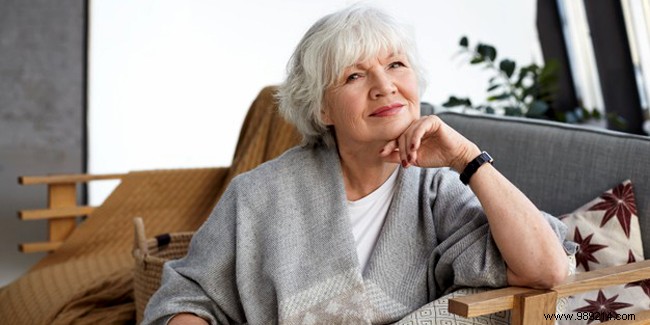
Homes-housing, now called "autonomous residences", designate a set of dwellings which accommodate elderly people over the age of 60, alone or in couples, most often completely autonomous, who, for various reasons, no longer wish live in their home. This type of social accommodation, which meets a need for support for the elderly, allows seniors to maintain their independence in a peaceful living environment close to all useful services, combined with collective services.
Renamed today “autonomy residence”, a home-housing refers to a set of rental accommodation for the elderly, and common areas made available to residents.
The seniors who live there (on average about fifty) benefit from individual and private apartments (studio, F2, and sometimes F3) which preserve their privacy and independence. On the other hand, the residential homes also have places made available to the collective life of the residents (catering room, entertainment room, etc.).
The operation of residential homes, which belong to the category of social and medico-social establishments and services, is governed by a law of January 2002 and by provisions of the Code of Social Action and Families. The departmental council is the institution responsible for issuing the authorization to operate an independent residence and which ensures regular monitoring of the services offered to residents.
The law determines the minimum services that must be offered in a hostel:administrative management of the stay (inventory of fixtures on arrival and departure, monitoring of the rental contract, etc.); the possibility of installing telephones and televisions in each dwelling; the provision of collective spaces and their maintenance; an offer of collective or individual actions to prevent the loss of autonomy (in the autonomy residence or outside); a catering and laundry service; Internet access at least in part of the household; a safety device providing the resident with assistance and a means of signaling himself at any time of the day or night; entertainment and activities organized within the establishment and the organization of outdoor activities.
People who live in a residential home benefit from the service of a lunch, delivered to their accommodation or taken in the dining room. However, some residences offer this service as an option for breakfast and dinner. In this case, the accommodations being equipped with a small kitchen, the residents have the possibility of preparing or reheating their meals.
Autonomous residences also allow seniors who reside there to have access to external care providers such as doctors or nurses. However, some residential homes are staffed by staff such as caregivers or nurses.
Autonomy residences, which have a social vocation, are managed either by public structures or by non-profit associations. This is why they offer accommodation at moderate rents.
Autonomy residences are most often located in the heart of cities, close to shops, transport and other useful services. To easily find a home-housing, the national information and guidance portal for the elderly provides a directory of these establishments on its website, which also mentions the rental prices of the accommodation per month, a price which includes the rent. , charges, fees related to included services and those that are optional.
Homes-housing, or independent residences, are intended for the accommodation of non-dependent elderly people, alone or in couples, who can still perform a large number of acts of daily living alone, without the help of a third party. necessarily. In principle, these are not residences for the elderly who require significant medical care or daily assistance in everyday life. Despite everything, they can accommodate them, but in limited numbers.
These are often seniors who prefer to leave their homes to no longer suffer from isolation, to live as close as possible to shops and services, or because their income no longer allows them to assume the financial costs associated with occupation of their home.
By joining a home, seniors can continue to live independently, while enjoying collective services such as catering, cleaning services, fun activities, etc.
To be able to reside in a home, a senior must be over 60 years old. Then, he must justify a level of loss of autonomy, called the GIR (group iso-resources), calculated from an evaluation carried out using the AGGIR grid which allows in particular to know if an elderly person can receive the personalized autonomy allowance (APA). A residential home thus accepts people whose level of loss of autonomy is assessed in GIR 5 or 6, that is to say who do not encounter major difficulties.
However, a person in GIR 4 (thus who encounters some difficulties due to their loss of autonomy for certain acts of daily life, but not all) can be admitted to an autonomy residence if the latter has signed an agreement with an Ehpad and , either a home nursing service (SSIAD), a multipurpose home care and assistance service (SPASAD), a health center or a health professional.
A senior in a residential home whose loss of autonomy deteriorates sharply cannot in principle stay in this type of accommodation.
Residing in a residential home entitles residents, who meet the conditions, to receive certain assistance such as APA at home, personalized housing assistance (APL), social housing allowance (ALS), or, in in some cases, social housing assistance (ASH).